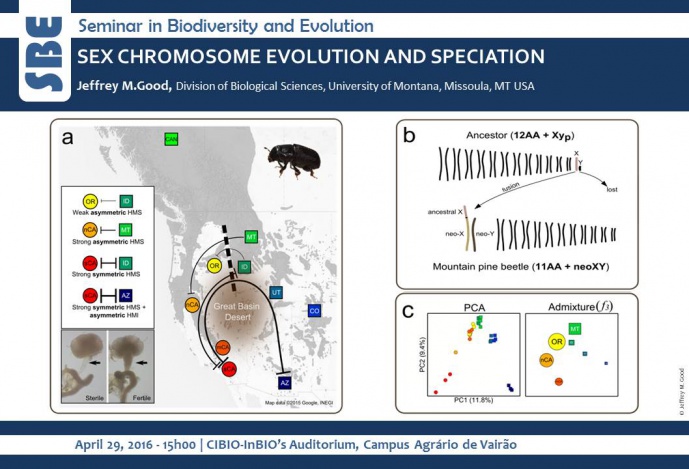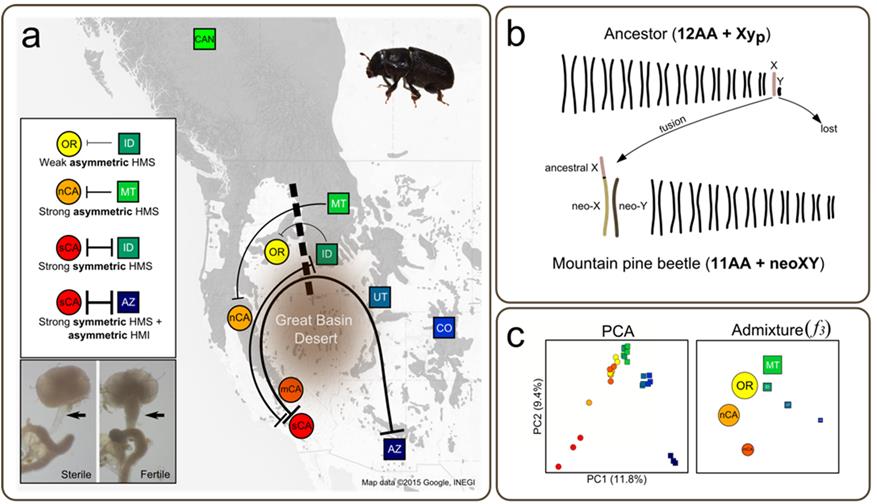SEX CHROMOSOME EVOLUTION AND SPECIATION


Sex chromosomes play disproportionately large roles in adaptation and speciation but the links between these two processes remain unclear. The tempo of genome evolution is thought to be particularly rapid during transitions to new (neo) sex determining chromosomes, yet the impact of neo-sex chromosome evolution on incipient speciation has received little attention. I will discuss our research combining extensive crossing experiments with population and comparative genomic data in the neo-XY mountain pine beetle system. With these data we show a rapid progression of intrinsic reproductive isolation between closely related populations that is geographically coupled with extensive genetic and functional differentiation of the neo sex chromosomes. Our results provide insights into the early stages of sex chromosome evolution and its potential to drive incipient speciation.
Jeffrey M. Good is Assistant Professor at the University of Montana, co-director of its genomic core facility and director of the Philip L. Wright Zoological Museum. His laboratory develops research on Evolutionary Genomics to understand the origin of biodiversity. More specifically, his research is focused on Development, Sex Chromosomes, and Speciation, Adaptation to Changing Environments and Hybridization and Ecological Speciation, using a variety of biological models, such as house mice, dwarf hamsters, beetles, hares or chipmunks.
[Group Leader: Paulo Célio Alves , Conservation Genetics and Wildlife Management]
Image credits: Jeffrey M. Good